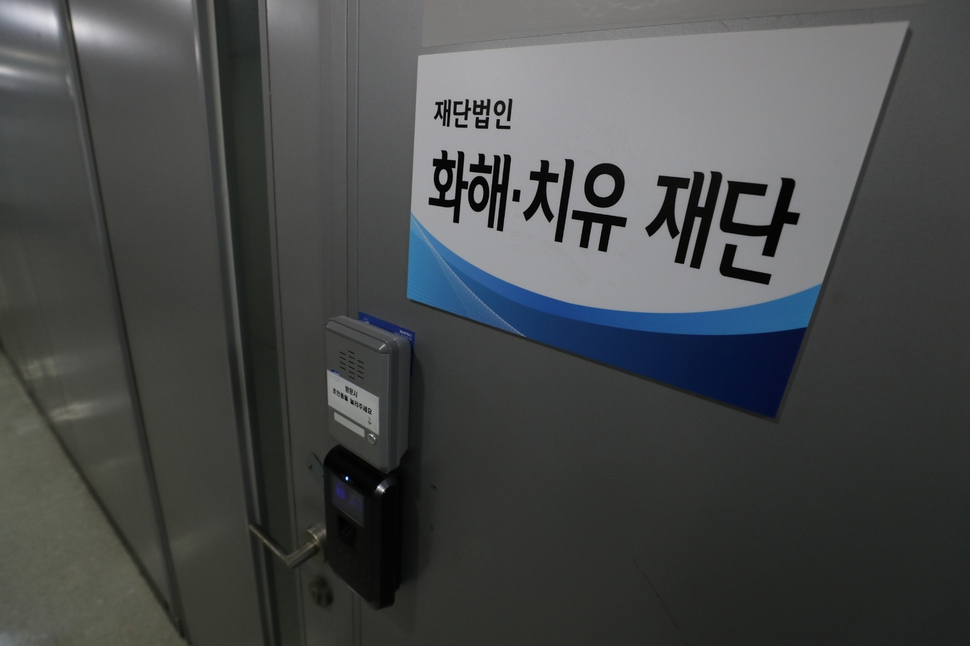Posted on : Nov.22,2018 17:08 KST
 |
|
The door to the Reconciliation and Healing Foundation remains closed after the announcement of its dissolution. (Baek So-ah, staff photographer)
|
The South Korean government officially announced on Nov. 21 that it plans to go ahead with legal procedures to dissolve the Reconciliation and Healing Foundation. This comes two years and four months after the foundation was established in July 2016 to pay compensation to comfort women survivors and surviving family members following the Park Geun-hye administration’s agreement with the Japanese government on the comfort women issue the preceding December.
With the foundation’s dissolution, that agreement – which included terms for survivor compensation efforts funded with a contribution of 1 billion yen (US$8.85 million) from the Japanese government – has now basically been reduced to a shell of its former self. Given that the most vocal critics of both the agreement and the foundation have been the comfort women survivors themselves – who maintain that they do not represent a sincere apology or remorse – this move to dissolve the foundation feels, if anything, late in coming.
Japan argues that this was a legitimate intergovernmental agreement that represents a “final and irreversible solution” to the comfort women. But Japan ought to reflect upon the fact that even international human rights organizations have been very critical of its position. A few days ago, the UN Committee on Enforced Disappearances stated that the comfort women agreement denied the rights of the victims and that Japan’s compensation was inadequate. And back in August, the UN’s Committee on the Elimination of Racial Discrimination criticized the agreement for neither failing to specify responsibility for human rights violations against women nor taking a victim-centered approach.
In the end, these international bodies share the view that the comfort women issue will not have been resolved until the victims have received relief from their emotional wounds and lingering resentment. Despite that, the Japanese government gave South Korea 1 billion yen and told it to handle things on its own while repeatedly attempting to wash its hands of the whole matter. Such behavior disregards universal human rights standards. In order to truly resolve the comfort women issue, Japan should hurry to show contrition and make a heartfelt apology while willingly assuming legal responsibility.
The South Korean government hasn’t expressed any specific plans about the next steps, such as how to deal with the 5.78 billion won (US$5.12 million) remaining at the Reconciliation and Healing Foundation. For now, the government’s clear pledge to take action after soliciting the opinions of the former comfort women and related groups is victim-centered, which makes it a step in the right direction.
Given the Japanese government’s response to the foundation’s dissolution, South Korea and Japan’s relations are likely to remain tense for some time to come. While the historical issues affecting the two countries are unlikely to be resolved through short-term diplomatic negotiations, Seoul shouldn’t sit idly by. It must not halt its efforts to persuade the Japanese government by increasing the scope of dialogue between civic groups in the two countries and by raising the issue on the international stage.
Please direct comments or questions to [english@hani.co.kr]






